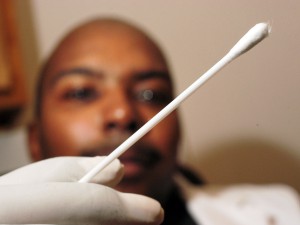Supreme Court to Decide Whether DNA Collection Requires a Warrant
In 2009, Alonzo King was arrested and charged with second degree felony assault in Maryland. As part of the arrest, the police took a sample of his DNA through a cheek swab. The DNA sample was compared to a federal database of DNA samples from unsolved crimes. There was a match. The DNA sample linked King to a 2003 robbery and rape of a woman. Based on the DNA link, King was sentenced to life in prison for rape. The original assault charge was reduced to a misdemeanor.
A state Court of Appeals overturned King’s sentence, finding that King’s 4th Amendment right against unreasonable searches had been violated by the DNA sample taken. Furthermore, according to Maryland law, police can only take DNA samples for felonies, not misdemeanors. The US Supreme Court is now hearing the case in 2013.
It is important to clarify the central issue of this case: whether the police can take DNA samples from persons arrested for a felony. Convicted felons are rightfully subjected to such cheek swabs, but persons who are arrested are still considered innocent until proven guilty. Those who are arrested, but not yet tried, enjoy the same rights as other citizens.
 These rights include the right against unreasonable search and seizures. Most people know that the police cannot search their house without a warrant, but the 4th includes not only homes, but also our actual “persons.” A person’s DNA is their genetic make-up and is what gives that person their physical characteristics. DNA is intrinsically tied to a person’s personal body. Given that the intent of the 4th Amendment is to protect against excess state intrusion into a citizen’s private life, allowing the police to take a DNA sample of an arrestee without a warrant would undermine a fundamental constitutional right.
These rights include the right against unreasonable search and seizures. Most people know that the police cannot search their house without a warrant, but the 4th includes not only homes, but also our actual “persons.” A person’s DNA is their genetic make-up and is what gives that person their physical characteristics. DNA is intrinsically tied to a person’s personal body. Given that the intent of the 4th Amendment is to protect against excess state intrusion into a citizen’s private life, allowing the police to take a DNA sample of an arrestee without a warrant would undermine a fundamental constitutional right.
The state of Maryland and the Obama administration would counter that this expansion of government power is reasonable under the 4th Amendment. Persons who are arrested are already required to turn out their pockets and give their fingerprints to the police. In addition, DNA samples help shut previously unsolved crimes. Victims will gain closure when DNA puts a criminal in prison. Innocent persons wrongfully accused will be exonerated. DNA samples are a powerful tool for the criminal justice system.
First, taking cheek swabs is significantly different from taking fingerprints or demanding that a person turn out their pockets. Fingerprints are commonly used to identify people and can sometimes link present criminals to past crimes, so prosecutors can be forgiven for believing that an external imprint on one’s skin is somehow the same as the fluids inside one’s body.
DNA, however, can reveal information which a fingerprint does not, information such as genetic diseases or disorders a person might have or will eventually have, certain biochemical personality traits such as their level of thrill-seeking, and even their life expectancy. Essentially, DNA is a massive compilation of personal background information, which in contrast to turning out one’s pockets, is not relevant to a case.
More importantly, cheek swabs and the extraction process are more invasive than taking a fingerprint. Cheek swabs involve sticking a Q-tip inside a person’s mouth. It is not harmful and prosecutors would insist that the process is not actually intrusive. Persons who are arrested and then forced by the police to have an instrument stuck up their mouth would disagree. If the state is required to acquire a warrant to search an area outside of a person’s body (i.e. their house), the state should be required to obtain a warrant to search inside a person’s body as well.


Comments